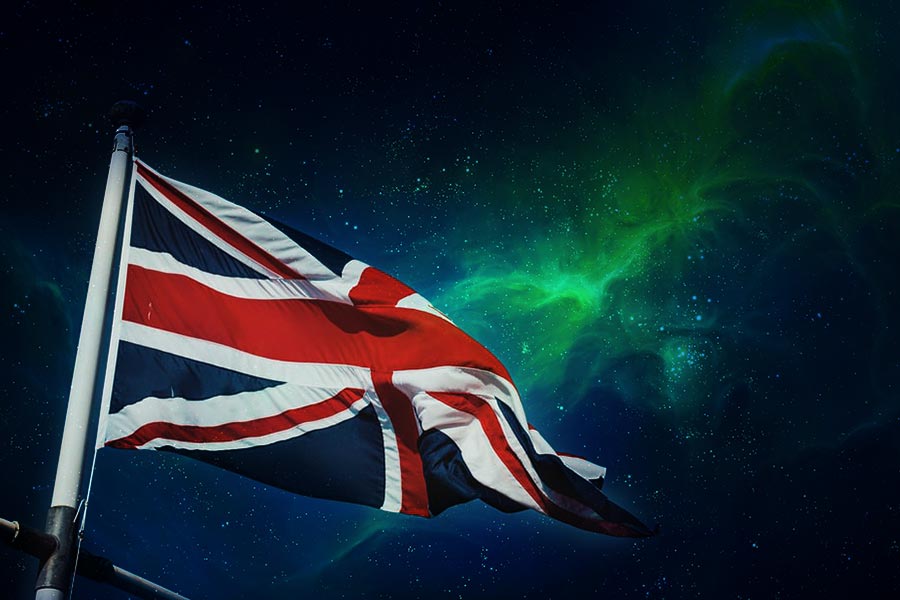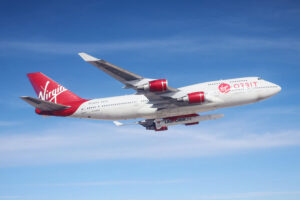The Most Important Milestones in the British Space History & the Future Potential
10th Dec 2021
Reach for the stars: British Space History
The space sector is the most rapidly growing in the UK, and the British space history goes way back to the mid 20th century. According to the Statista website, over the past ten years, industry turnover has grown from 22 to 35 billion pounds, and its share in the global space industry has exceeded 5%. The UK is now the second-largest smallsat producer after California, with satellite services estimated at £300 billion of GDP. The government plans to commission several commercial UK spaceport facilities, which will allow the country to become a key player in the launch services market and, by 2030, hopefully occupy 10% of the global space market.
Of course, all these achievements would have been impossible without a strong foundation that has been built for over 80 years. Orbital Today analysed key events in the British space exploration timeline.
1933 – BIS is founded
Britain’s long and painstaking journey to space began in 1933 with the founding of the British Interplanetary Society. This was not a prototype for the British space agency, but rather a group of enthusiasts who dreamed of using rocket engines to fly to the moon and other planets. The famous science fiction writer Arthur C Clarke was one of the society’s founders. By 1939, BIS had developed a detailed design of a manned spacecraft for a 20-day expedition to the moon. After the war, BIS was engaged in the theoretical development of projects such as an astronaut’s spacesuit, the use of nuclear energy for jet engines, the creation of a global communications system, etc.
The BIS society still exists today. It publishes several space-related magazines, in particular Spaceflight, holds symposia and lectures.
1943 – First manned suborbital space flight project funding proposal
The proposal was based on the adaptation of the German V long-range ballistic missiles to deliver people into space. However, the initiative was cancelled due to World War II and the subsequent lack of funding. The Allies later captured the V rockets, which ultimately formed the basis of their space launch programs.
1952- British Space Programme is officially launched
The British space program was adopted with the goal of developing the country’s economic potential against the backdrop of the space race that arose during the Cold War between the USSR and the USA, marking another important event on the space exploration timeline.
1962 – First British satellite is launched
Ariel 1
It was named Ariel 1 and was launched by NASA from Cape Canaveral on 26th April. The device was developed by UK but built by the Americans.
This event made the UK the third country in the world, after the USA and USSR, to operate its own satellites, marking the history of space exploration timeline for the UK. Until 1980, five more satellites were launched under the Ariel UK space program.
1971 – UK enters the space race with Black Arrow
Following the first satellite, the UK created its own Black Arrow rocket and successfully launched it from the Woomera spaceport in Australia. The launch was an important event in the history of space exploration timeline, because it was the only time so far when a British satellite (called Prospero) was launched into orbit using a British rocket. In 1972, the Black Arrow UK space program was shut down as unprofitable, and the last unused R4 rocket was set on display at the Science Museum in London, where anyone can still see it today.
1975 – Britain and nine other nations founded the European Space Agency
ESA was called to combine European space technologies and create capabilities beyond the United States’ control. The UK provided most of the technology on early projects, and to this day, remains a member of many ESA programs despite Brexit.
1985 – British National Space Centre is founded
The BNSC operated through a voluntary partnership of ten UK government agencies, departments, and research councils. The priority areas were space science, Earth Observation, satellite communications, and global navigation.
In 2010, the British Space Agency Center was transformed into the UK Space Agency. By that time, the organisation’s annual budget was about £270 million.
1991 – First British Astronaut
She was 27-year-old Helen Sharman, a chemist from Sheffield. It was she who, ahead of almost 13 thousand other competitors, was selected to participate in the joint Soviet-British project Juno. Sharman completed 18 months of training at Zvyozdny Gorodok before embarking on an eight-day mission to Mir Station with two Soviet astronauts on a Soyuz rocket. Sharman became not only the first British and European woman to travel to space, but the first British astronaut in general, making history of space exploration timeline for Britain.
For her achievements, Sharman received a star on the Sheffield Walk of Fame and will be remembered as the key figure in British space exploration timeline.
2003 – Bigl-2 Launch
The British lander, named after the ship Charles Darwin travelled on, was intended for the exploration of Mars. It was assumed that the device will stay on the red planet for six months, will investigate geology, mineralogy, geochemistry, and climate data at the landing site, replenishing space exploration timeline with valuable data. However, contact with the device was lost shortly before entering the atmosphere of Mars.
Only 12 years later, Bigl-2 was identified in images taken by NASA’s Mars Reconnaissance Orbiter. It turned out that the module landed in the planned area, but the solar panels did not fully deploy, which led to the failure of the repeater (the panels blocked it). Still, its importance for the British space agency cannot be underestimated.
2004 – Aerospace company Virgin Galactic is founded
British billionaire, Richard Branson, creates private aerospace company Virgin Galactic dealing with space tourism, becoming the third person on the list of private space pioneers after Bezos and Musk. Today we already know that Branson has achieved his goals, marking an important milestone on the British space exploration timeline. In July 2021, he and several other civilians embarked on a suborbital tourist flight aboard the VSS Unity ship, which lasted an hour and a half. Notably, Branson managed to get ahead of its competitors, even though he started later than them. Blue Origin New Shepard and SpaceX Crew Dragon conducted their civilian missions a little later.
2015 – Aerospace company Orbex Space is founded
A private company based in Forres, Scotland, aims to create an ultralight rocket for launching smallsats and CubeSats. Now, Orbex Prime is months away from launch and should soon mark an important event for the British space program.
2015 – Army Aviation Major Tim Peake becomes first British ESA astronaut to visit ISS
Tim Peake took part in over 250 scientific experiments for ESA and international partners during his half-year mission, contributing his share to the UK space program development.
2017 – Aerospace company Skyrora is founded
Another private Scottish company, Skyrora, is actually taking on the mission of reviving the Black Arrow legacy. Its XL launch vehicle is very similar to the first British rocket but should be more efficient and environmentally friendly. Skyrora develops an innovative Ecosene rocket fuel made from plastic waste. The company also works on the third stage of its Space Tug vehicle for cleaning up space debris and servicing satellites in orbit. When operational, the tech will become a major step on the space exploration timeline.
2018 – British Government passes the space industry law that sets the stage for UK spaceports construction
This marks the beginning of conciliation and preparation for the construction of the first commercial launch sites in the British Isles. Seven UK spaceport locations are selected: five in Scotland (Sutherland, Prestwick, Shetland, North Uist, Cambletown) as well as Cornwall, South West England, and Llanbedr in Wales.
2021 – Space Hub Sutherland and Cornwall Spaceport is scheduled to launch
These UK spaceports are now close to commissioning. SHS overcame the last hurdle by winning a lawsuit against the launch site filed by local businessman Anders Povlsen, and Cornwall is almost ready to service Virgin Orbit, another Richard Branson’s company for smallsats delivery to orbits.
These are the most significant events in British Space History. Of course, one could hope for more British space achievements, but we are sure that, very soon, this list will expand, and the UK will become a new leader in space exploration.






Thank you for your comment! It will be visible on the site after moderation.